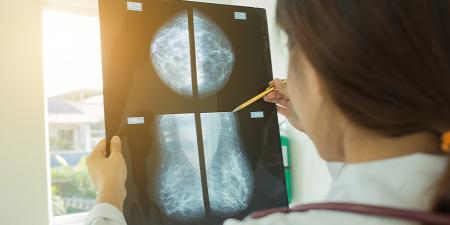The Geisel School of Medicine at Dartmouth has more than a dozen years’ experience incorporating elements of quality improvement (QI) and systems into its curriculum. This began with introductory lectures in the late 1990s to create student awareness about health care quality and systems and has developed into an integrated, four-year curriculum that imparts a basic understanding of the health care system, interprofessional teamwork, health outcomes, and financing. As we engage in comprehensive curriculum redesign, these elements will be a core part of our new curriculum.
The Geisel School of Medicine admits about 85 students each year. The general curriculum focuses primarily on the scientific foundations of modern medicine in the first year, pathophysiology of disease in the second year, core clinical clerkships and electives in the third year, and advanced clinical training and required capstone courses in the fourth year. In 2006 and again in 2011, Geisel’s medical education committee sought to increase coverage of these curriculum topics and experiential learning opportunities for second-year medical students. These changes have led to the current integrated four-year experience.
The first-year core curriculum includes the Fundamentals of Health Care Delivery Science seminar course. The discipline of health care delivery science (HCDS) combines evidence-based medicine and the study of health outcomes with leadership, teamwork, health care systems knowledge, and financing. The seminar series provides a broad foundation in health care delivery science in an interprofessional environment. Our teachers for these sessions come from expert faculty within the Dartmouth Center for Health Care Delivery Sciences, Geisel, the Dartmouth Institute of Health Policy and Clinical Practice, Tuck School of Business, Dartmouth-Hitchcock Medical Center, and the White River Junction VA Medical Center. Each class is a 75- to 90-minute large-group seminar session usually focused on a case study. The class meets about once a month between September and May. Students prepare for class by reading articles or short chapters or watching a video. Through student and faculty discussion, the class identifies health care system problems in the case and seeks resolutions for those problems. In the spring, each student writes an essay analyzing a case, using skills developed during the nine sessions.
In year two, the health care systems material is integrated into the Scientific Basis of Medicine organ-based pathophysiology courses. Students gain the knowledge and skills to describe the people, structures, and processes within a system as well as the principles of variation and measurement for QI and are introduced to analyzing data using statistical process control charting. They then apply their knowledge to local examples, such as regional variation in care for acute stroke, local performance gaps in the evidence-based practices for patients in the intensive care unit, and population health factors for vaccinations. In the cardiology course, for example, students explore the system-level interventions and measurement tools that are used to assess and improve door-to-balloon time for acute myocardial infarction. The QI and systems curriculum thus becomes a new endpoint to the study of pathophysiology from the cellular level to organs, organs to organ systems, organ systems to patient presentation and treatment, and from there to delivery system dysfunction and improvement. Importantly, the courses focus on outcomes at affiliated hospitals and efforts to close quality gaps at those hospitals.
Second-year students with a particular interest in QI and systems can also enroll in the quality improvement practicum. This elective pairs medical and nursing students and provides an opportunity to work on a QI project at a local site. In small-group sessions on campus, students start to develop skills such as writing an aim, evaluating processes, analyzing data, and recommending changes. The student teams then apply these skills in clinical settings with the assistance of a site coach. Over the years, student teams have increased routine urine screening for pregnant women, analyzed causes of delays in colonoscopy scheduling, and assessed the care of intravenous catheters on the oncology service. These student teams bring fresh eyes to the systems and processes at their sites.
In year three, Geisel students apply the foundational knowledge they gained in years one and two during core clinical rotations. For example, students who rotate on inpatient medicine at the White River Junction VA hospital, where QI is integrated into teams’ routine work, have increased pneumococcal vaccination rates, deep venous thrombosis prophylaxis, and evidence-based smoking cessation interventions. While these opportunities are not present in every clerkship at every location, we have begun to integrate this work for our resident programs which makes the important connection for our medical students.
Year four brings all students back to campus for required capstone courses that deepen their knowledge of the health care system, QI, patient safety, and safe prescribing. Health, Society, and the Professional is a required interprofessional course for all medical students. There are two components to the course. In the first component, medical students spend four weeks in teams of about 10 with a QI coach analyzing a system of care delivery, reviewing outcomes data, and presenting recommendations to the site and their student and faculty colleagues. The second component of this course comprises weekly interprofessional sessions with nursing and physician assistant students. In small and large groups, the students discuss cases that focus on ethics, innovation in health care, finance, and policy. These sessions provide an opportunity for all students from several professional schools to explore these important topics together before they enter practice together.
In the coming years, we are preparing for the next iteration of the Geisel curriculum. Our redesigned curriculum will include four required core courses for all students. Each spans four years and requires about 80 hours of curriculum time. The courses will provide a depth and breadth of knowledge and skills in critical appraisal of health care literature and evidence, design and improvement of systems, leadership in health care, and the contextual factors that impact the delivery of care for patients and populations.
We recognize that unprecedented progress in biomedical science and the tremendous pressures to contain the cost of care have transformed care delivery and the practice of medicine. This has placed greater urgency on translating research and evidence into practice and, at the same time, has fostered disparities in quality of and access to health care. It is no longer sufficient for physicians to be competent only in the biomedical and clinical sciences; they must understand the system of care in which they work, collaborate with all professionals on the health care team, and help improve the quality, safety, and value of care. From the bench to the bedside to the community and beyond, leaders are needed who can think critically, innovate creatively, and work collaboratively to realize high-quality evidence-based health care in the US and worldwide. We believe that Geisel is positioned to prepare students as leaders with the knowledge, skills, and experience necessary to address these challenges.



